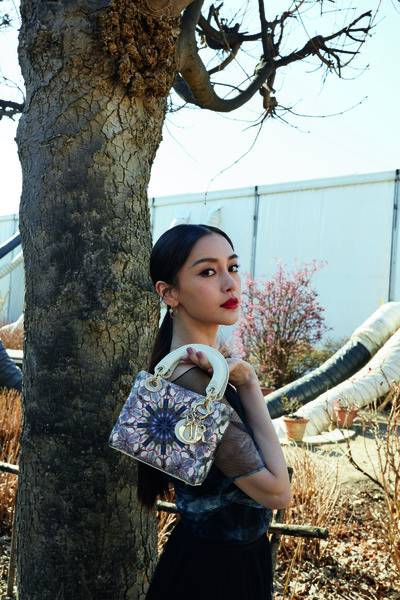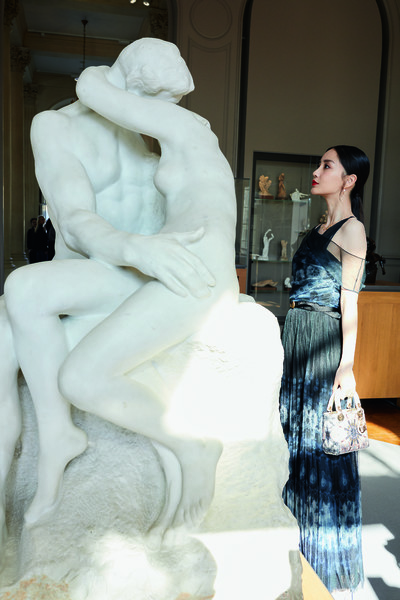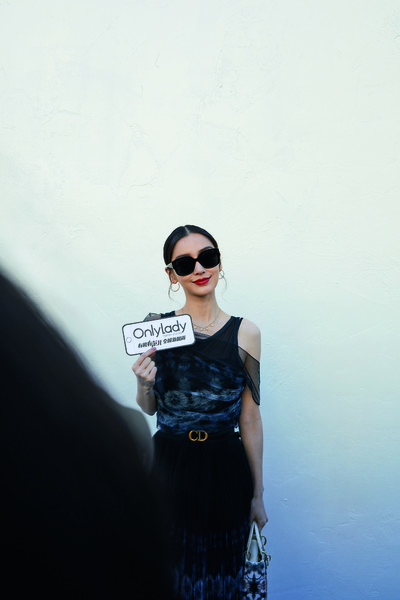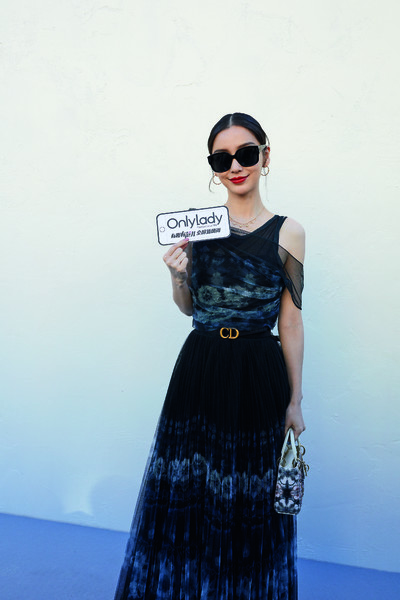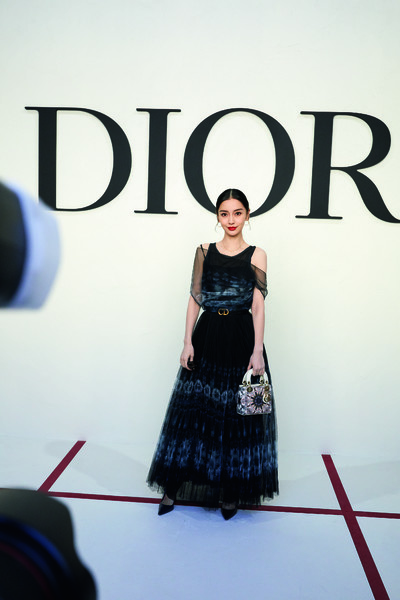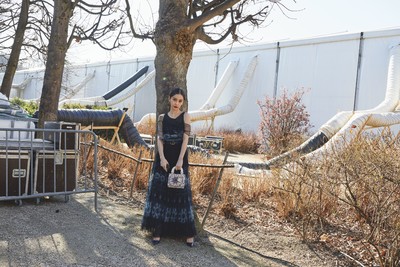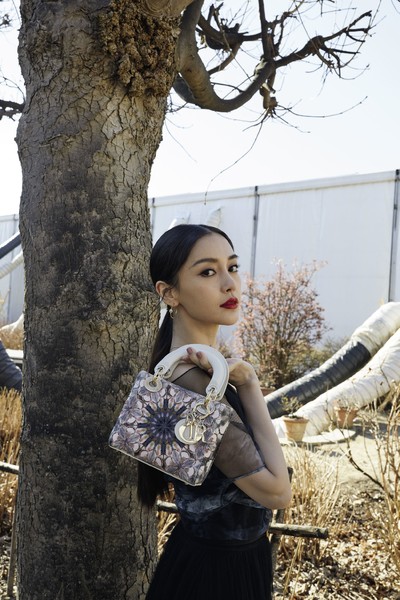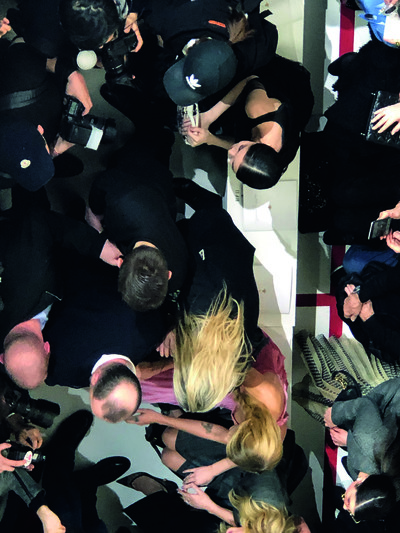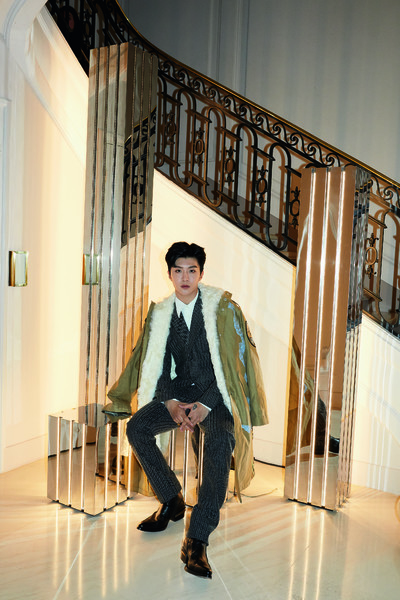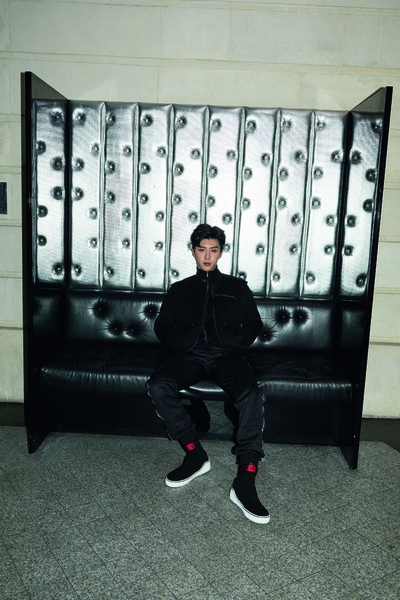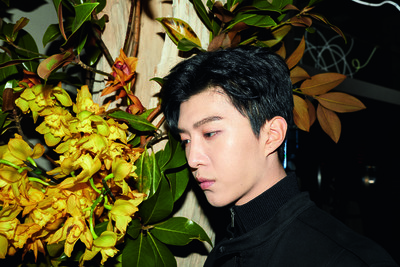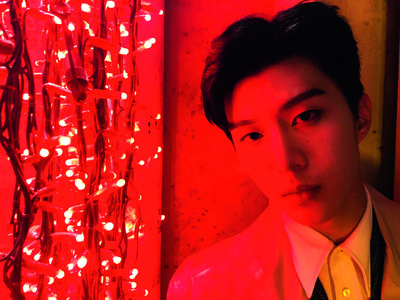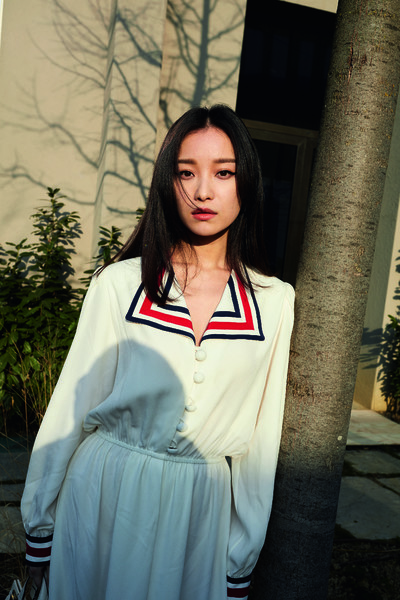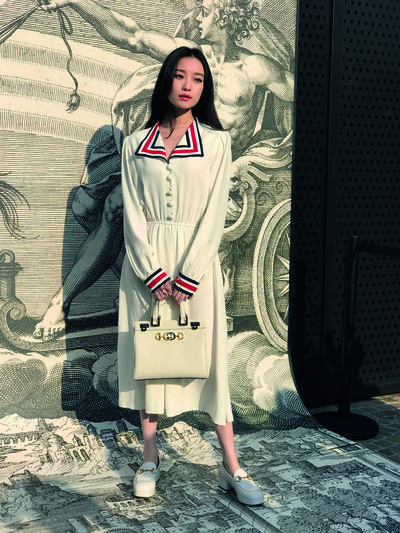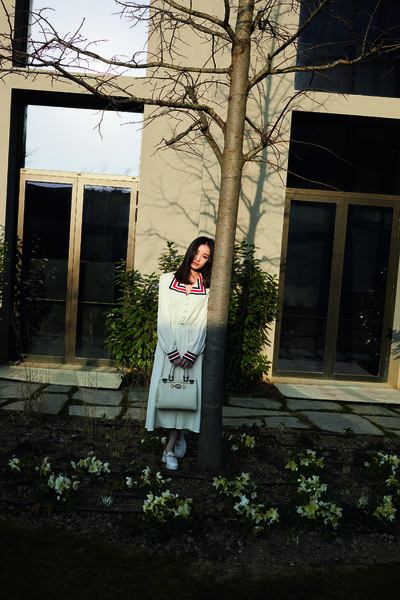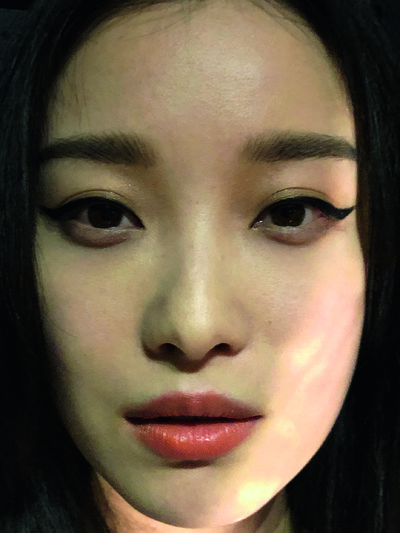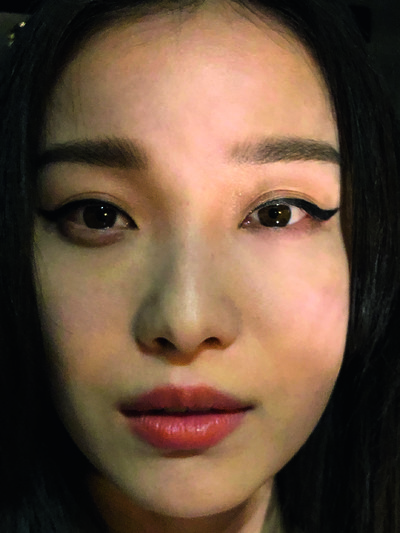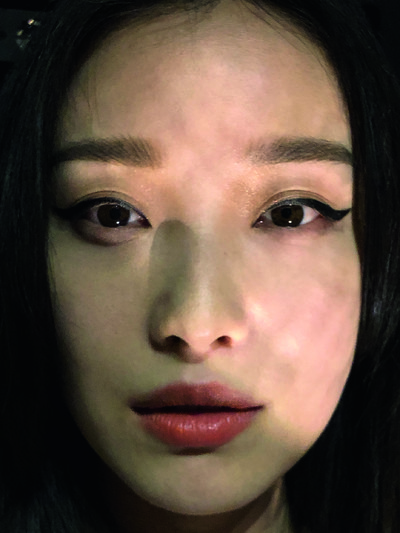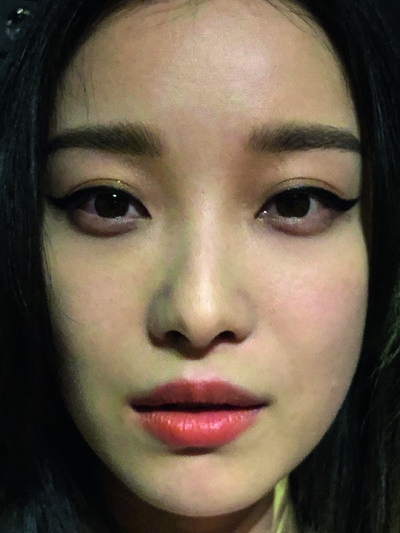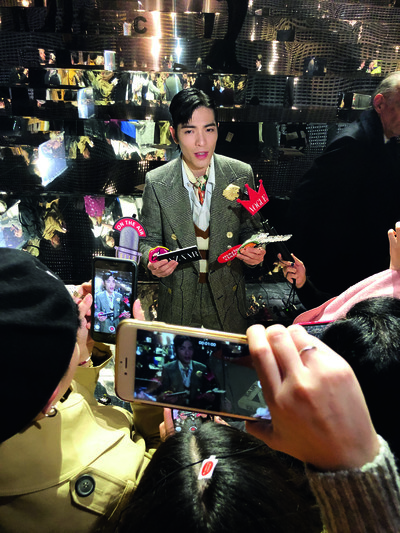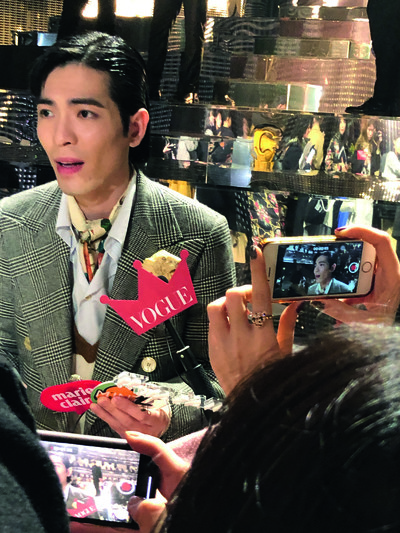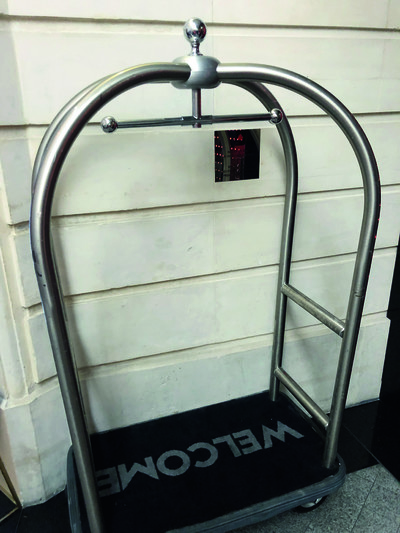The Chinese social-media stars keeping Western fashion alive, post by post.
By Hung Huang
Interviews by Blake Abbie
Portfolio by Juergen Teller
The Chinese social-media stars keeping Western fashion alive, post by post.
‘As an ambassador, your role is to be the transmitter, to explain a brand’s concept and story. Depending on the style of brand, I’ll adjust how I speak on its behalf – we always manage to find a balance between their needs and mine.’
‘As a bridge between brands and consumers, I take my responsibility extremely seriously. My fans seem to be very happy, because I try to recommend only great products – I even use them myself.’
‘My followers think of me only as the movie character they see on screen, so I like to share my personal life on social media, giving them a glimpse of when I’m travelling, or of my cat.’
‘My bag is my key look. Some days, I choose what to wear based entirely on the bag I want to carry that day. I am a luxury shopper, so I’m basically a “bagfan” myself.’
It was 2014. Céline was showing its Fall/Winter collection in Beijing. In the front row, next to the editors of Vogue, Harper’s Bazaar and Elle, was a man with skinny, high-chiselled cheekbones, and hair streaked with silver held tightly in a ponytail. He wore a white Comme des Garçons men’s shirt with black ankle-length skirt pants by a local Chinese designer called Bai Peng. I know because he had bought them in my store, Brand New China, in Beijing. I thought no Chinese men would actually wear them in public, simply because no one was that fashion forward. I was wrong, Wang Yi was.
At the time, Wang was editor in chief of all fashion-related content on sina.com, a company with revenues of $2.11 billion in 2018, which owns Weibo, China’s Twitter-like microblogging platform that today has over 460 million active users. He was in charge of content on five Sina channels: Woman and Fashion, Art, Health, Education and Lifestyle; in other words, he was the guy who could bring millions of eyeballs to any fashion event. A year before the Céline show, he had combined the Woman and Fashion channels into one, and made Sina and its billions of daily page views the most important platform for luxury fashion brands in China.
Last month, I met Wang Yi in his office, still with the same look but without the high-fashion outfit. Instead, he was in full geek mode: olive-green T-shirt and baggy jeans that were practically falling off of his skinny waist, and a big lumberjack flannel shirt. He is now the general manager of Sina’s commercial content, in charge of both advertising and editorial collaborations. He seemed content to let Yuki Zhao, his handpicked deputy, run everything fashion related. He was comfortable in his clothes and ready to show off his latest gadgets to the visitor.
With the growth of e-commerce in China, Sina and Weibo are uniquely positioned to drive traffic to anyone’s online store, an ability that allowed them to fight back after losing significant market share to Tencent’s WeChat. Weibo has an advantage thanks to young celebrities, like Angelababy, Chris Lee and TF Boys. These mega-celebrities do not only have huge fan base in the tens of millions, but also sophisticated fan clubs that can drive sales of celebrity-endorsed products. Fan club members earn merit points when they buy concert tickets, movie tickets or products represented by the celebrities. These points then earn fans chances to meet their idols, or even take a selfie with them. A recent art exhibition organized by singer Chris Lee titled Supermarket, showed artwork by young artists and offer various products, such as lipsticks and eggs, for sale. Each fan was allowed only 10 items, it was sold out in two hours.
‘I love fashion and hope that I am considered an “influencer” who can impact many people. I know my followers like my opinions – not only the aesthetics of fashion, but also the ide aof my lifestyle. Some have even chosen fashion-related college majors because of me. That’s a mutual achievement.’
The majority of these fans are female, and they not only follow fashion idols, but also boy bands, such as the wildly popular phenomenon, TFBoys. Like Angelbaby and her Dior contract, the three band members have all earned mega-sponsorship deals with brands including L’Oréal and Bottega Veneta. When brands switch sponsorship from one celebrity to another, the respective fan clubs go to war on Chinese social media.
Amid this frenzied action, Weibo plays a huge role. As the platform to recruit and interact with fans, it has helped Chinese celebrities build their fanbases. In return, celebrities are more than happy to help Weibo drive more traffic to the site and so strengthen it in its fight against its competitors such as WeChat.
The difference between Weibo and WeChat is more or less the difference between making a speech at Tiananmen Square or in your living room. Weibo allows a free flow of traffic to browse your content whereas WeChat is based around groups, like WhatsApp. Of course, Weibo also has the advantage of having Taobao – the world’s biggest e-commerce website – as a shareholder, increasing its ability to shape its social-media platform for commercial purposes.
Taobao has the lion’s share of the fashion e-commerce market, so Weibo has become the display window for the world’s largest virtual mall. Which makes Wang the decision-maker about what goes in the mall’s shop windows and his editor Yuki the window dresser.
Last year at the Cannes Film Festival, I hosted a series of interviews with Chinese celebrities who were all spokespersons for various L’Oréal products. These interviews were first aired on e-commerce sites such as Tmall.com, JD.com and VIP.com, with direct onscreen links to products provided for the viewers. By the end of the festival, nearly $6 million in revenue had been raised by this celebrity content.
Brands are increasingly either creating content themselves or collaborating with platforms to use celebrities to push sales. Indeed, this has proven to be the most effective way of marketing to millennials in China today. ‘There is a difference between the content we create and those created by stars and influencers. We consider ourselves as media and check our content as strictly as any print publication,’ says Yuki. ‘Influencers and stars are much more about opinion and taste, whereas we are news.’
‘I now travel to different cities to meet my bagfans. In the past, we’ve held bagfan conventions in Beijing, Shanghai, Hong Kong, London, Paris, Los Angeles and other cities. Many bagfans buy what I recommend.’
It is true – Sina is all about news. It was formed in 1998 in California when a news website and a technology company merged to form sina.com, a Chinese-language news service that aimed to provide news to the Chinese diaspora around the world, and sina.cn, a news website for mainland China. Its rise to prominence began in 2001, strangely brought about by the 9/11 tragedy in New York. At that time, traditional media were barred from reporting major news until a ‘party line’ had been handed down by the Ministry of Propaganda. So as 9/11 happened in real time on sina.cn, all traditional media including radio, television and print were left waiting for word from high above. The result was that the Chinese public headed to sina.cn and made it the premier news website in the country.
Since then, Sina has been at the forefront of pushing the boundaries of the Internet in China. In 2005, it launched Sina Blog, the first user-generated-content platform in China. It made writers like Han Han overnight stars and became an important liberal voice in Chinese society. It also made me a blogger, albeit unwillingly at first. I was dead against user-generated content and wrote about it in a magazine. Unfortunately, a popular blogger picked up the article, and before I knew it I had an empty Sina Blog page with more than 4,000 comments condemning me as a snob. It was the power of the Internet. There is nothing like a whole bunch of hateful eyeballs to make you start explaining yourself. Four years later, in 2009, Sina launched Weibo, its micro-blogging site. It was an instant hit, the first real-time social-media platform in China. I joined Weibo in its testing phase, and it quickly became a hotbed for liberal social opinion. Needless to say, when it was finally fully launched, it became not only a forum for liberal democratic commentaries, but also the platform for Chinese to air their grievances against government policies and officials. It was also a place for rumours and otherwise forbidden news in China. When human-rights activist Liu Xiaobo won the Nobel Prize in 2010, for example, Chinese heard about it on Weibo, nowhere else.
Weibo soon became a problem for the Communist Party, which by 2014 considered it a menace and a source of possible social unrest in China. The Party appointed a new Internet tsar, Lu Wei. He was determined to clean up Weibo, and one of the first things he did was to organize a dinner for major Weibo influencers. I was there. The conversation was a weird dance between the censor and those he wanted to censor. Throughout the dinner, no one said anything close to the truth; Lu Wei splattered opaque warnings and threats, while the rest of us uttered insincere support for his efforts to clean up the Chinese Internet. Within two months, one of the dinner guests had been detained for soliciting prostitutes, the arrest in a shabby brothel broadcast on national television. He was also made to confess his ‘crimes’ on the same station. Which was when Weibo went very quiet. Later, as other influencers were censored and their accounts cancelled, many more users started leaving Weibo. Meanwhile, WeChat was taking over as the premier social-media platform in China, and hosting the first generation of fashion influencers such as Gogoboy, Libeika and Mr. Bao (also known as Mr. Bags – who in 2018 sold over $500,000 worth of co-branded Tod’s
bags in six minutes).
‘As a KOL, my influence depends on whether my followers love and support me. In the past, I didn’t manage that so well and I know that our interactions on Weibo and WeChat were decreasing. Some people noticed, even sending me messages saying they felt I was drifting further away from them. Since then I’ve made sure to rebuild and maintain my fan base, even asking their opinions of things.’
Today, if you ask the people at Sina the difference between WeChat and Weibo, the answer they’ll give is ‘content’. Weibo, they say, is content driven and Sina people see themselves as content people. Wang Yi said that when he first became involved with fashion content, he realized that fashion, art and lifestyle were all linked and interwoven: ‘It is the link that makes the story interesting and creates attention.’ To this day, Wang says he is more a media guy than anything else; he considers himself a content curator. On the other hand, to those at Sina, WeChat’s owner Tencent is about pure technology, its content driven by algorithms and big data, all to maximize profit.
Thanks in part to Wang Yi and his team, Weibo is once again a popular platform on which to promote fashion and lifestyles. ‘Our mission is to provide the most accurate information about fashion products and the most interesting fashion opinions,’ says Yuki. ‘But new media is tech driven, so we are also preparing to launch a new product that will allow China’s millennials to move seamlessly between fashion information, opinion and product. This will be the new thing.’
This new app on which Yuki has been working for the past year is designed for today’s China: ‘We have found that the gap in fashion taste between first-tier cities and third- and fourth-tier cities is closing. There is as much appetite for luxury and fashion in smaller cities in China as in major metropolitan areas.’
‘Isn’t it kind of sad that you guys were like the New York Times and now you are just a commercial platform?’ I asked.
‘So what, Amazon owns the Washington Post,’ a junior Sina editor retorted.
She was right, it was a different age, and Sina has moved on.
